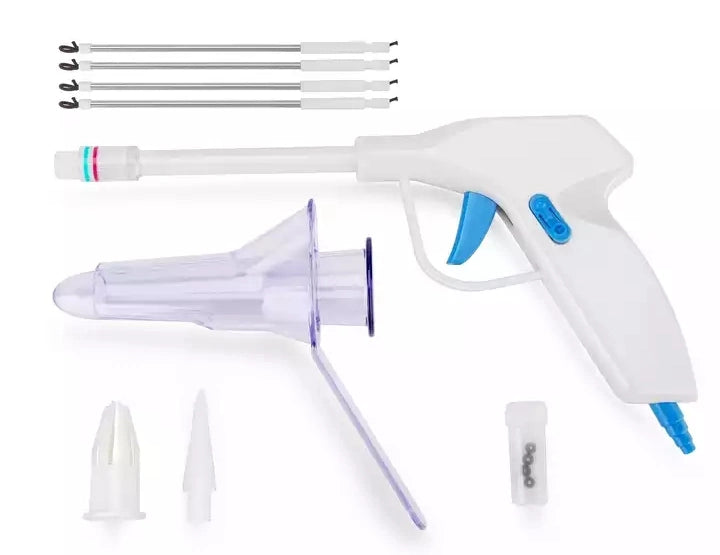Hemorrhoids, often characterized by pain, itching, and rectal bleeding, affect many people worldwide. Treatment options range from lifestyle changes to surgical procedures, with laser and ligator treatments being two popular medical interventions. This blog post delves into the differences between these two methods, providing a clear understanding to help you make an informed decision.
What are Hemorrhoids?
Hemorrhoids are swollen veins in the lower rectum and anus. They can be classified into two main types:
- Internal hemorrhoids: Located inside the rectum, these are usually painless but may cause bleeding.
- External hemorrhoids: Found under the skin around the anus, these can be painful and may bleed.
Common causes include straining during bowel movements, prolonged sitting, obesity, pregnancy, and a low-fiber diet.
Overview of Laser Treatment
Laser treatment for hemorrhoids involves using a focused beam of light to shrink hemorrhoidal tissue. This method is minimally invasive and can be performed on an outpatient basis. Here are the key aspects of laser treatment:
- Precision: The laser precisely targets hemorrhoidal tissue without affecting surrounding areas.
- Minimal Pain: Patients often experience less pain compared to traditional surgical methods.
- Quick Recovery: The procedure usually results in a shorter recovery time.
- Reduced Bleeding: The laser cauterizes blood vessels, reducing bleeding during and after the procedure.
Procedure Details
- Preparation: The patient is given local anesthesia to numb the area.
- Laser Application: A laser beam is directed at the hemorrhoids, causing the tissue to shrink and eventually fall off.
- Post-Procedure Care: Patients are advised to rest and avoid strenuous activities for a few days.
Overview of Ligator Treatment
Ligator treatment, also known as rubber band ligation, involves placing a small rubber band around the base of an internal hemorrhoid. This cuts off the blood supply, causing the hemorrhoid to shrink and fall off. Key aspects include:
- Effectiveness: Particularly effective for treating internal hemorrhoids.
- Simple Procedure: The method is straightforward and can be done in a doctor’s office.
- Minimal Discomfort: Most patients experience minimal discomfort during the procedure.
- Quick Procedure: The process usually takes only a few minutes.
Procedure Details
- Preparation: No special preparation is needed, though a mild sedative may be given.
- Band Placement: The doctor uses a special instrument to place a rubber band around the hemorrhoid’s base.
- Post-Procedure Care: Patients may experience mild discomfort, which can be managed with over-the-counter pain relievers. The hemorrhoid typically falls off within a week.
Comparing Laser and Ligator Treatments
Effectiveness
- Laser Treatment: Highly effective for both internal and external hemorrhoids, providing immediate relief from symptoms.
- Ligator Treatment: Effective primarily for internal hemorrhoids. Multiple sessions may be needed for complete treatment.
Recovery Time
- Laser Treatment: Faster recovery, with most patients resuming normal activities within a few days.
- Ligator Treatment: Slightly longer recovery, with some discomfort lasting a few days.
Pain and Discomfort
- Laser Treatment: Generally associated with less pain during and after the procedure.
- Ligator Treatment: Minimal pain during the procedure, but some discomfort as the hemorrhoid falls off.
Risks and Complications
- Laser Treatment: Lower risk of complications, though there may be a slight risk of infection or bleeding.
- Ligator Treatment: Risk of mild complications such as bleeding or infection, but these are typically manageable.
Cost
- Laser Treatment: Generally more expensive due to the advanced technology and equipment required.
- Ligator Treatment: More affordable and widely available.
Factors to Consider When Choosing a Treatment
When deciding between laser and ligator treatments for hemorrhoids, consider the following factors:
- Severity of Hemorrhoids: Laser treatment is suitable for both internal and external hemorrhoids, while ligator treatment is mainly for internal hemorrhoids.
- Pain Tolerance: Laser treatment may be preferable for those with low pain tolerance.
- Budget: Ligator treatment is more cost-effective.
- Recovery Time: If quick recovery is a priority, laser treatment might be the better option.
- Doctor’s Recommendation: Consult with a healthcare professional to determine the best treatment based on your specific condition.
Lifestyle Changes to Support Treatment
Regardless of the treatment chosen, adopting healthy lifestyle habits can help manage and prevent hemorrhoids:
- High-Fiber Diet: Include plenty of fruits, vegetables, and whole grains to soften stools and reduce straining.
- Hydration: Drink plenty of water to keep stools soft.
- Regular Exercise: Engage in regular physical activity to promote healthy bowel function.
- Proper Bathroom Habits: Avoid straining during bowel movements and respond promptly to the urge to defecate.
Exploring Other Treatment Options
In addition to laser and ligator treatments, there are other methods to consider:
- Sclerotherapy: A chemical solution is injected into the hemorrhoid, causing it to shrink.
- Infrared Coagulation: Infrared light is used to coagulate the blood vessels of the hemorrhoid.
- Hemorrhoidectomy: Surgical removal of severe hemorrhoids.
- Stapled Hemorrhoidopexy: A stapling device is used to remove a portion of the hemorrhoid and pull the remaining tissue back into place.
When to Seek Medical Attention
It’s important to seek medical advice if you experience:
- Severe pain: Persistent or intense pain that doesn’t improve with treatment.
- Heavy bleeding: Significant bleeding that doesn’t stop.
- Changes in bowel habits: Unexplained changes in bowel movements.
- Lump formation: Painful lumps near the anus.
Choosing between laser and ligator treatments for hemorrhoids depends on various factors, including the severity of your condition, budget, pain tolerance, and recovery time preferences. By understanding the differences and consulting with a healthcare professional, you can make an informed decision that best suits your needs. Remember to complement your treatment with healthy lifestyle habits to manage and prevent hemorrhoids effectively.

